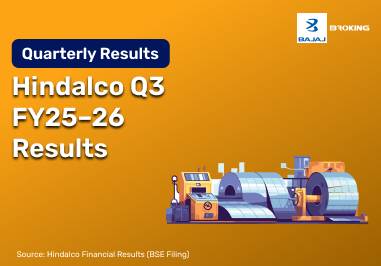Top 5 Biotech Stocks in India You Should Know
The table below presents some of the key biotechnology and medical research companies in India, ranked by their market capitalisation. It also includes details such as their latest stock price, percentage change, 52-week high and low values.
Company Name
| Last Price (₹)
| % Change
| 52-Week High (₹)
| 52-Week Low (₹)
| Market Cap (₹ cr)
|
Biocon
| 325.65
| -5.76%
| 404.60
| 260.00
| 39,097.54
|
Concord Biotech
| 1,646.30
| -4.39%
| 2,658.00
| 1,326.90
| 17,222.97
|
Sun Pharma Adv
| 142.40
| -5.04%
| 474.00
| 109.20
| 4,621.19
|
Windlas Biotech
| 969.80
| -4.82%
| 1,197.00
| 494.70
| 2,032.63
|
Softrak Venture
| 3.00
| +4.90%
| 4.93
| 1.21
| 135.23
|
Source: MoneyControl as of 4 Apr’25
Overview of Biotech Stocks
This brief table offers a snapshot of selected biotech stocks based on their market capitalisation. These companies are active in the biotechnology and medical research sector and reflect varied sizes and price movements.
Company Name
| Market Cap (₹ cr)
|
Biocon
| 39,097.54
|
Concord Biotech
| 17,222.97
|
Sun Pharma Adv
| 4,621.19
|
Windlas Biotech
| 2,032.63
|
Softrak Venture
| 135.23
|
Source: MoneyControl
Biocon Ltd.
Biocon Ltd. is one of the leading biopharmaceutical firms in India with a focus on therapy areas of diabetes, oncology, and auto-immune diseases. It has diversified revenue streams in biosimilars, generics, and new biologics. It leverages advanced fermentation and recombinant DNA technologies in its R&D and manufacturing processes.
Company Overview Table: Biocon Ltd.
Metric
| Value
|
Market Cap (₹ cr)
| 39,169.57
|
Last Price (₹)
| 326.25
|
52 Week High/Low (₹)
| 404.70 / 259.85
|
TTM EPS (₹)
| 6.70
|
TTM PE
| 48.69
|
P/B Ratio
| 1.87
|
ROE (%)
| 5.16
|
Net Profit (₹ cr)
| 1,382
|
Net Sales (₹ cr)
| 14,755
|
Debt to Equity Ratio
| 0.80
|
Source: MoneyControl
Highlights:
● Strong focus on biosimilars with international collaborations.
● Reasonable valuation with PE close to sector average.
● Stable promoter holding of 60.64% as of Dec 2024.
Concord Biotech Ltd.
Concord Biotech Ltd. specializes in fermentation-based APIs with a presence in niche therapeutic areas such as immunosuppressants and oncology. The company has witnessed robust growth through capacity expansions and product launches.
Company Overview Table: Concord Biotech Ltd.
Metric
| Value
|
Market Cap (₹ cr)
| 17,276.84
|
Last Price (₹)
| 1,651.45
|
52 Week High/Low (₹)
| 2,664.00 / 1,327.05
|
TTM EPS (₹)
| 31.38
|
TTM PE
| 52.63
|
P/B Ratio
| 10.86
|
ROE (%)
| 19.97
|
Net Profit (₹ cr)
| 304
|
Net Sales (₹ cr)
| 1,016
|
Debt to Equity Ratio
| 0.00
|
Source: MoneyControl
Highlights:
● Zero-debt company with improving ROE and ROCE.
● Successfully commissioned new injectable manufacturing facility.
● Promoter holding stands at 44.08% as of Dec 2024.
Sun Pharma Advanced Research Company Ltd. (SPARC)
SPARC focuses solely on pharmaceutical R&D. It develops new chemical entities (NCEs) and novel drug delivery systems (NDDS). Its portfolio includes early- and late-stage assets across therapeutic areas like oncology, neurology, and inflammation.
Company Overview Table: Sun Pharma Adv.
Metric
| Value
|
Market Cap (₹ cr)
| 4,699.40
|
Last Price (₹)
| 144.81
|
52 Week High/Low (₹)
| 472.80 / 109.30
|
Book Value Per Share (₹)
| -2.45
|
ROE (%)
| -310.83
|
Net Profit (₹ cr)
| -388
|
Net Sales (₹ cr)
| 75
|
Debt to Equity Ratio
| 0.38
|
Source: MoneyControl
Highlights:
● Focus on novel R&D despite consistent net losses.
● Clinical pipeline includes investigational drug SBO-154 for solid tumors.
● Promoter holding at 65.67% as of Dec 2024.
Windlas Biotech Ltd.
Windlas Biotech manufactures finished dosage formulations (FDFs), CDMO products, and domestic branded generics. Its client base includes many leading domestic pharma companies. The firm maintains a healthy financial profile and operational efficiency.
Company Overview Table: Windlas Biotech Ltd.
Metric
| Value
|
Market Cap (₹ cr)
| 2,040.81
|
Last Price (₹)
| 973.70
|
52 Week High/Low (₹)
| 1,198.25 / 495.65
|
TTM EPS (₹)
| 29.25
|
TTM PE
| 33.29
|
P/B Ratio
| 4.33
|
ROE (%)
| 12.91
|
Net Profit (₹ cr)
| 58
|
Net Sales (₹ cr)
| 630
|
Debt to Equity Ratio
| 0.00
|
Source: MoneyControl
Highlights:
● Debt-free status with consistent double-digit ROE.
● Recent sales growth over 20% Y-o-Y in Q3 FY25.
● Promoter holding steady at 62.51% as of Dec 2024.
Softrak Venture Investment Ltd.
Softrak Venture operates at the intersection of IT services and healthcare R&D. Although categorized under biotech, its operations are more aligned with enabling healthcare digitization through technology solutions.
Company Overview Table: Softrak Venture Ltd.
Metric
| Value
|
Market Cap (₹ cr)
| 135.23
|
Last Price (₹)
| 3.00
|
52 Week High/Low (₹)
| 4.93 / 1.21
|
TTM EPS (₹)
| 0.07
|
TTM PE
| 42.86
|
P/B Ratio
| 0.30
|
ROE (%)
| 4.76
|
Net Profit (₹ cr)
| 2
|
Net Sales (₹ cr)
| 0
|
Debt to Equity Ratio
| 0.00
|
Source: MoneyControl
Highlights:
● Micro-cap firm with IT-biotech hybrid positioning.
● Registered over 100% stock appreciation YoY in April 2024.
● No promoter holding as per Dec 2024 shareholding data.
How To Invest In Biotech Stocks?
To invest in biotech stocks effectively, it is crucial to conduct thorough research on the companies involved. This includes analyzing their financial health, product pipelines, and market positioning. Opening a demat account is essential for holding and trading shares electronically. Diversification across different sectors and focusing on established companies with robust financials can help mitigate risks. Staying updated on market trends and regulatory developments is also vital for making informed investment decisions.
Conclusion
Investing in biotech stocks offers a promising avenue for growth, driven by India's thriving biotech industry and supportive government policies. While biotech stocks come with inherent risks, the chance they'll bring high returns and resilience under economic downturns is attractive to risk-tolerant and long-term investors. To boost returns, investors should stay informed about market trends and regulatory developments. Utilizing tools like a brokerage calculator can help assess potential returns and risks more effectively.
Other Popular Stocks in India
Here are other notable companies in India's biotechnology sector that are actively contributing to innovation and growth across therapeutic and research domains:
● Laurus Labs Ltd.
Focuses on high-volume API manufacturing and has diversified into formulation and biotech segments including recombinant protein production.
● Shilpa Medicare Ltd.
Specializes in oncology APIs and formulations, with increasing investments in biologics and biosimilars through its dedicated biopharma division.
● Syngene International Ltd.
Operates as a contract research and manufacturing organization (CRAM), providing integrated discovery, development, and manufacturing services to global pharma and biotech firms.
● Neuland Laboratories Ltd.
Known for its expertise in process R&D and API production, the company is increasing its footprint in complex molecules and biotech intermediates.
● Aarti Drugs Ltd.
While primarily focused on pharmaceuticals, the company is expanding capabilities into biotech-based products and niche therapeutic categories.















